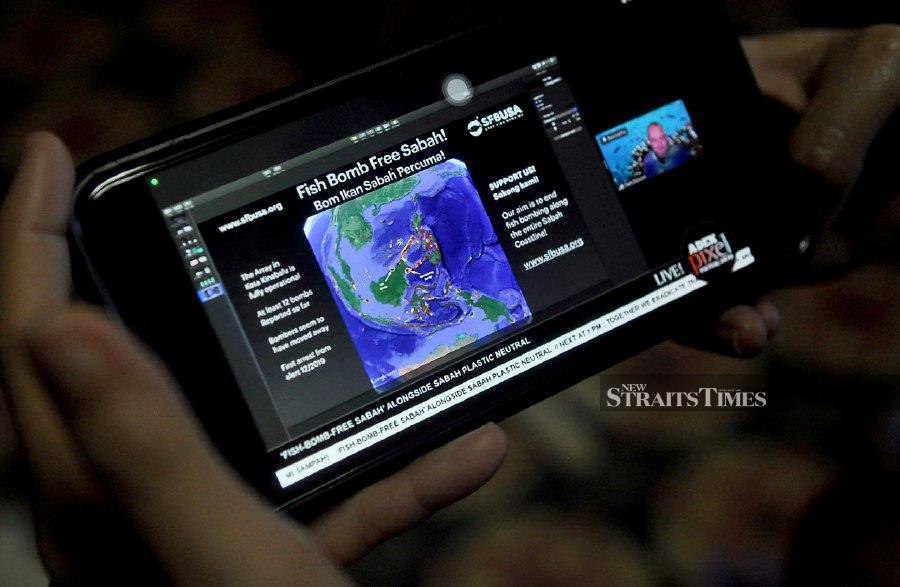By Olivia Miwil - December 12, 2020 @ 2:32pm
“Early this year, through 12 sensors, Sabah Parks managed to charge five people in two fish bombing cases off Tunku Abdul Rahman marine park”. NSTP/MONICA CHIN & MOHD ADAM ARININ.KOTA KINABALU: A non-governmental organisation is hoping to deploy 250 underwater bomb detection sensors throughout Sabah's coastal waters in a bid to end fish bombing.
Stop Fish Bomb Sabah Malaysia executive director Terrence Lim said during the organisation's past projects, it had helped the authorities to obtain blasting data through their technology.
"Early this year, through 12 sensors, Sabah Parks managed to charge five people in two fish bombing cases off Tunku Abdul Rahman marine park (TARP) here.
"For the next course of action, we plan to increase the number of sensors to be deployed throughout the state. The cost is estimated to be around RM 5 million," he said during a webinar hosted by Blu Hope on "'Fish-Bomb-Free SABAH' Alongside Sabah Plastic Neutral".
Lim said the destructive method of fishing is categorised into three - curious fish bombers; those with big family members to feed; as well as commercial operations.
He said Covid-19 had placed a lot of pressure on fishermen whose livelihoods were affected due to restricted movement and this could be seen from villagers' report of 20 blasts being heard in a single day of the North Kudat sea early this year.
"That is why we also need to ensure funds (to stop fish bombing) are put aside to improve the livelihoods of the community.
"Apart from deployment of sensors, we would also want to set up startup funds and empower the women to increase their livelihoods," he said, adding the move to make collecting plastic from the sea would also be an alternative source of income to make them move from fish bombing.
Dive ranger founder Jude Junius said underwater explosives can often be heard by divers within TARP. Therefore, installing underwater explosive detectors is important to detect fish bombing activity there.
Last year in July, two Chinese tourists and a local divemaster were believed to have been killed by fish bombs while diving in the waters off Semporna.
"We are indeed in need of more underwater bomb detection devices with a standby boat to go after (the culprits) when blasting occurs.
"But there should also be educational programmes for the people, although it would take a longer time to make it happen.
"They (fish bombers) know it is wrong to catch fish with such methods, it is a gamble of getting arrested (or injured by the bomb)," he said, adding the group would also do their part to protect marine life.
Former Assistant Tourism, Culture and Environment Minister Datuk Pang Yuk Ming said the state government has been committed to protecting the environment with the past track record of preserving natural gems such as Sipadan island and Danum Valley Conservation areas.
"However, these conservation efforts are not only the responsibility of the Sabah government and non-governmental organisations. Everyone is part of the equation.
"Members of the public could also do their part by donating to the efforts of non-governmental organisations," he said.
For donation to stop fish bombing efforts, public can access to https://www.sfbmy.org/

Comments
Post a Comment